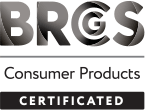As with all facets of health and beauty, skin care is subject to trends and fashions from various reference points around the world. The cultural melting pot has created techniques and innovations that influence the products bought and the technology behind them.
‘Skip-care’ is the latest trend in skin wellness. It challenges the fundamentals of skin care, and to many people that are used to the rigors of modern skin care, it feels like a breath of fresh air. Skip-care has one fundamental principle at the core – to do away with unnecessary products and streamline the daily care process, using only the products that work for them. Skip-care does away with today’s common beauty routines that can be 10 or 12 steps long – sometimes even more.
In a world of micellar waters, acid exfoliators, biodermal creams and toners, the idea behind skip-care is that it reduces the amount of unnecessary materials coming into contact with the skin, retaining as much of its natural qualities as possible. This means that products that can multi-task win out over those that are singularly-focused.
The trend originated in South Korea, a country known for its booming cultural influence and blossoming fashion, health and beauty scene. The K-Wave as it’s known, describes the incredible growing influence that South Korea has on the world’s stage, particularly in the areas of culture, fashion and technology.
One of the most notable aspects of this is the K-Beauty (or Korean Beauty) revolution, a series of trends and ideals that began on the streets of South Korea and have become big business globally. Skip-care highlights a very noticeable difference in the beauty ideals of K-Beauty and common ideals of the west. The skincare industries across Europe and the Americas tend to rely on products and makeup that cover imperfections in the skin, whereas K-Beauty tackles the skin’s imperfections directly rather than covering up.
Skip-care is set to continue growing through the Western market. By using fewer products but with multiple functions, influencers and beauty industry experts are praising the convenience and time-saving through the more practical approach.
Oils have long been a staple of skin care, possessing several important qualities working in synergy that make them perfect for integrating into a skip-care routine. What’s more, oils retain much more of their natural benefits than many traditional skincare counterparts, which often rely on synthetic compounds and chemicals. Kerfoot offers oils for personal care, which are ethically and sustainably sourced, ensuring products minimise their environmental impact.
Natural oils, such as coconut oil, work to moisturise the skin while also presenting anti-bacterial qualities. Perfect for hydrating dry or irritable skin, coconut oil is often used in skin-softening treatments as a great source of vitamins E and K and can even be used to tame frizzy hair.
Another property of coconut oil is that it has anti-inflammatory qualities, having long been used to treat a number of skin disorders, such as eczema and dermatitis. Coconut oil achieves this through its blend of medium-chain fatty acids and hydrating qualities.
Essential oils can also be used as part of a streamlined skin care routine, although they may need to be used with a carrier to dilute the oil for more sensitive skin. Argan oil is one such example, possessing healing properties for the skin alongside beneficial nutrients such as vitamin E and fatty acids. Argan oil is noted for giving skin a youthful glow and restoring elasticity, which has made it a popular choice for skincare routines for many years.
Argan oil also boasts antioxidants which heal cracked, damaged or even burned skin, leading to its widespread use as an aftersun treatment when combined with its excellent absorbtion qualities.
As skip-care continues to grow as a trend, increasing consumer demand for ethically-sourced multi-tasking products is at an all time high. Natural and essential oils make a great addition to streamlined skin-care routines, providing healing and hydrating qualities in combination, and helping to reduce the chemical demands on skin.












